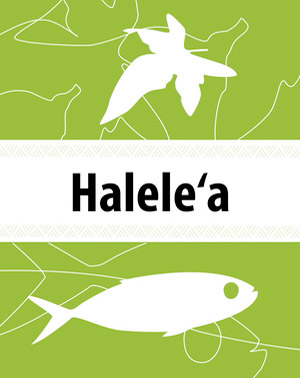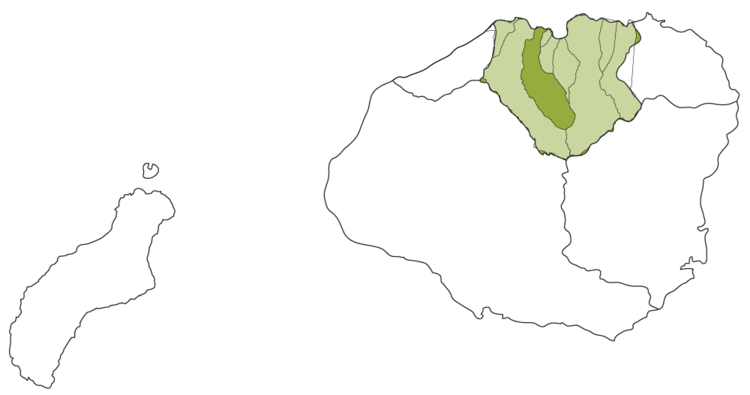Lumaha`i contains 3150 acres of land in a valley 9 miles long. Lumaha`i is A medicinal plant.


Lumaha`i: A medicinal plant
Alt: Lū-maha`i, Broken and scattered, like the waves
Lumaha`i contains 3150 acres of land in a valley 9 miles long. It undoubtably had many lo`i in the ancient days, but only one claim was made during the Mahele in 1848, so the extent of agriculturally developed fields and population remain unknown. In 1935 most of it was used as ranch lands and, except far up in the valley, all evidence of Hawaiian farming is gone.
Lumaha`i was famed for three groves of trees: the hau of Maihi, the ulu of Weli, and the hala of Mapuana. Ka-hala-o-mapuana was the sister of chief Aiwohikupuna. They lived about the year 1200, during the reign of Ka`ililauokekoa. The trees were noted for their red fruit, whereas the normal fruit is yellow.
Kalena ka makani lawe pua hala `ai a ke kina`u.
The Kalena is the wind that strews the pandanus fruit eaten by kina`u eels. [AA]
The kina`u, a small white eel, ate the hala fruit and in turn were eaten themselves. Kalena means, as a verb, to stretch out tight. It was also the name of a lua stroke, one of the deadliest forms of martial arts in which no hold was barred and death was the outcome.
On August 7, 1873, Charles R. Bishop, whose wife Bernice Pauahi had inherited the land from her hānai parent Abner Paki, formally submitted a Certificate of Boundary for this ahupua`a. It had been surveyed by James W. Gay.
A small brown shell used for the lei pūpū was found only at Lumaha‘i. They were used to make hat bands in more modern times. [Akina].
Lumaha‘i contained areas of quicksand that trapped unwary travelers.
The main road ran along the sea, around the point of Ho`ohila. The path around the point was hand made and replaced each time the waves washed it out.
The sands are said to summer in Lumaha‘i and winter in Kalalau.
Lumaha‘i, nowadays, is pronounced with the glotteral stop, but most native speakers say Lumahai, without the stop. This may be due to two reasons: the Kaua`i version of the glotteral stop is much softer than that used by Mary Pukui (the source for Samuel Elbert) who was from Ka`u on the Big Island. Another reason for the lack of a glotteral is "fast speech" where the speaker will not pronounce the glotteral as he speaks, assuming the listener knows what place he is talking about.